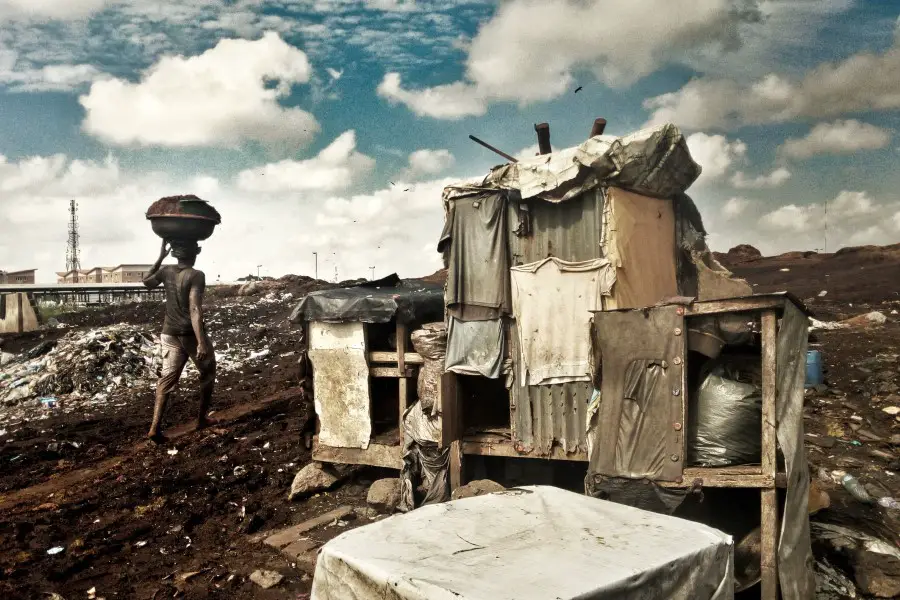This page contains affiliate links. This means if you a follow a link and make a purchase, at no additional cost to you, Humanitarian Careers will receive a commission. Thank you for supporting the site.
NGOs – non-governmental organizations, are independent organizations that provide assistance to people in need. There are hundreds of NGOs around the world, from famous international agencies to small local groups. NGOs portray the image that they work tirelessly delivering aid to communities hit by disasters or people living in poverty. However, criticism is building of NGOs as more people question – do they actually help?
NGOs definitely help. They provide lifesaving assistance to people impacted by disasters such earthquakes, floods, famines or extreme weather. They also help people forced to flee their homes due to conflict or persecution. NGOs further help by advocating for long-term and systemic change.
…but that’s just an overview. In order to understand if NGO’s really help, we need to ask some more questions.
Do We Know NGOs Actually Help?
So, it’s clear NGOs do good work and help many people, but in order to fully understand the help that NGOs provide, we first need to think about how we know NGOs actually help.
We know NGOs help people because they provide figures on the number of people they reach with their projects, by the feedback gained from communities they serve and monitoring visits and audits undertaken by donor agencies.
NGOs aim to be as transparent as they can. This helps with raising funds and with building trust with the wider public. Almost all NGOs publish annual reports and these include details on how many people they have helped. In most countries NGOs have a legal body that regulates their activities – this prevents them from inflating these figures. Generally, NGO reports can be one way we know NGOs actually help.
Another way we know NGOs help is by speaking to the communities they work in. NGOs are often well respected within the communities they serve, not only because they provide much needed assistance, but also because they provide jobs and stimulate the local economy. Speaking to the communities NGOs work in is a great way to know that they do good work.
One more way we know that NGOs really do help people is because of the monitoring donor organizations do. Many NGOs receive grants from large donors such as the United Nations, EU or national government development agencies. These bodies are strict about how their funds are used and regularly conduct audits and monitoring visits to ensure NGOs are reaching the correct people.
How Do NGOs Help?
Ok, so we know for sure that NGOs definitely provide a wide range of assistance to people in need. But in order to really understand if NGOs actually help, we now need to think about what kind of assistance NGOs provide people. There are four main ways that NGOs help:
- Give aid to people living in poverty
- Provide assistance to disaster hit communities
- Advocate for causes
- Act as neutral and impartial organisations
Let’s take a quick look at each of these…
Give Aid To People Living In Poverty
NGOs provide vital assistance to people living in poverty around the world. In many developing countries, the state lacks the resources needed to provide basic services such as healthcare, education and quality housing to people living in destitution. One of the main ways NGOs help is by giving aid to poverty stricken communities and working to break the ‘poverty trap’.
Provide Assistance To Crisis and Disaster Hit Communities
Another major way that NGOs help is by providing aid to people when disasters strike. When communities are hit by disasters – such as earthquakes, floods, famines or extreme weather, they require urgent assistance. NGOs deploy immediately to disaster zones to provide emergency lifesaving aid.
As well as providing aid to communities hit by natural disasters, NGOs also help people affected by crises. Conflicts, human displacement and economic depressions are just some of the crises NGOs respond to.
Advocate For Causes
One of the most important ways that NGOs help is through advocacy. NGOs campaign and raise awareness of key issues, as well as advocate for long-term and systemic change that can address the root causes of the issues they work on.
Act As Neutral And Impartial Organizations
The humanitarian principles are core to how NGOs work. These ensure that NGOs remain neutral and impartial – remaining strictly non-political and non-aligned with any side in a conflict, whilst providing assistance to anyone who needs it regardless of nationality, race, gender, sexual orientation, of group affiliation. This is unlike many other organizations and is key to how NGOs provide aid to those most in need.
NGO Online Courses
If you want to know more about NGOs, we highly recommend the online course Introduction to NGO Management. It goes over how NGOs operate and introduces students to the unique aspects of the NGO sector. Follow the link for more information.
Another online course we highly recommend for those wanting to know more about NGOs is How To Design and Fund International Development NGO Projects. Anyone working for an NGO needs a basic understanding of how NGO projects are set-up, and how to input to funding proposals. Click the link to get more information on the course.
If you are looking to work for an NGO, we highly recommend the online course International Humanitarian and Development Careers. We think it provides one of the best overviews of the NGO sector and gives a clear breakdown of the skills needed to get an NGO job. It also provides valuable information on how to successfully apply for positions within NGOs. Click the link to be taken to the course’s page.
Why Do Some People Think NGOs Don’t Help People?
Although the majority of people think that NGOs do good work, there is a minority that are vocal in their opposition to NGOs. But why? Why do some people think that NGOs don’t really help people? Well, here are a few reasons:
- Aren’t aware of the work NGOs do
- Are against NGOs
- Don’t fully understand the role that NGOs have
Now we’ll go over each of these in-turn…
Aren’t Aware Of The Work NGOs Do
A first reason why some people think NGOs don’t really help people is because they aren’t fully aware of the work NGOs do. Although many NGOs go to great lengths to produce communication materials – such as videos, adverts or brochures, about their works, still many people remain unaware of the work NGOs are doing on the frontline. This can contribute to people thinking NGOs don’t help.
Are Against NGOs
There are people who are actually against NGOs for different reasons and therefore say loudly that NGOs don’t really help. People may be against NGOs because they feel they do not align with them politically, or they disagree with who they work with. Others are against NGO because they believe NGOs shouldn’t help certain people.
Don’t Fully Understand The Role That NGOs Have
Another reason why some people don’t think NGOs help is because they miss understand the role that NGOs have. NGOs are independent aid organizations. This means they work where they feel their assistance is most needed. Many people misunderstand how NGOs operate and feel their work should more closely align with different societal or pollical motives. Although NGOs try and communicate their stances on many issues, still some people fail to fully understand what NGOs do.
Can NGOs Help More?
A final question we need to ask in order to understand if NGOs really help is if NGOs can do more? How can NGOs improve and ensure they are always helping those most in need?
There are several ways NGO can help more. These include better coordination between NGOs, improved understanding of the needs of the communities they serve and less reliance on large institutional donors.
The first thing NGOs need to do is help more is improve how they work together. When a disaster strikes, or in an area racked by poverty, often many NGOs do their work. However, when NGOs fail to coordinate their activities, they can end up duplicating their efforts, or leaving areas under-served. Improving coordination is key to NGOs helping more people.
The second thing NGOs must do to help more is better understand the needs of the communities they are working for. Too often NGOs make assumptions about the aid they should provide, or give assistance that does not meet the full needs of a community. Improving dialogue with beneficiaries and adapting their work based on community feedback is key to NGOs helping more.
A third way that NGOs can help more is to rely less of large institutional grants. Institutional donors – such as national governments, the EU or the UN, provide the majority of funding to NGOs. However, these grants are conditional on the NGO completing specifies activities within a set timeframe. NGOs often dedicate significant resources to competing for grants which takes energy away from frontline work. Relying less on institutional grants would help NGOs reach more people.
If you want to know more about NGOs, explore our page on the top NGO online courses here.





